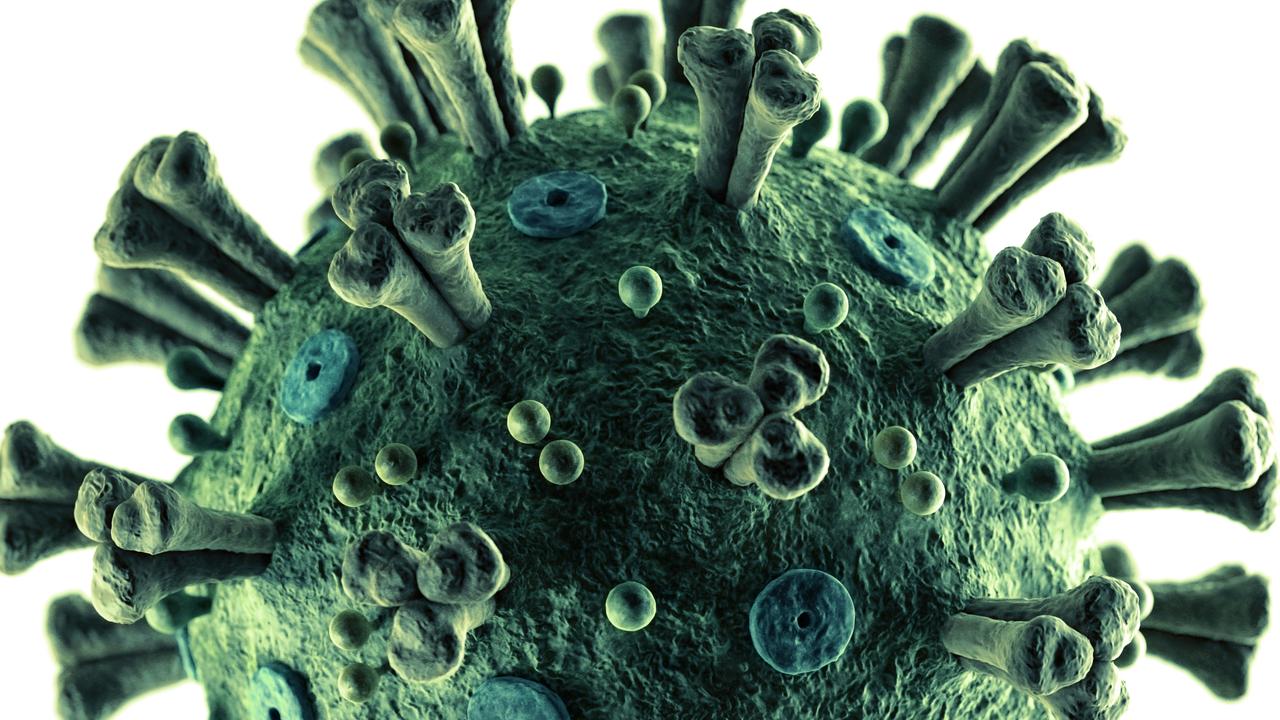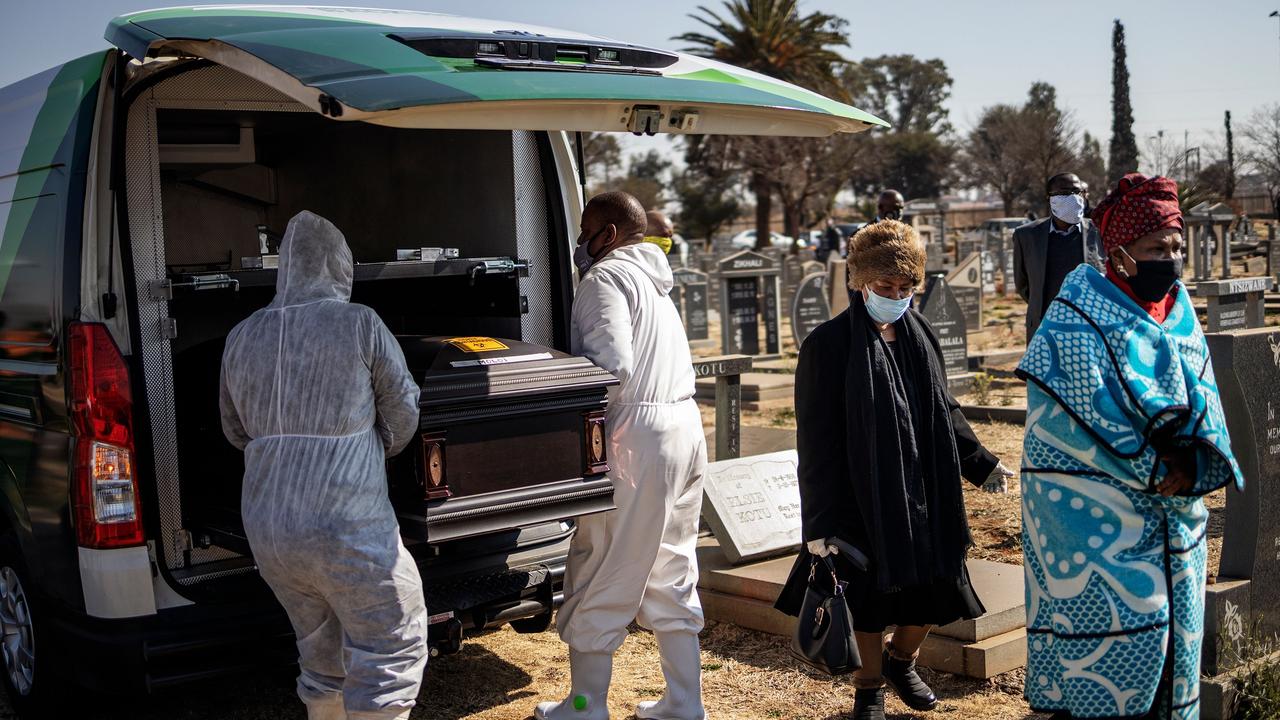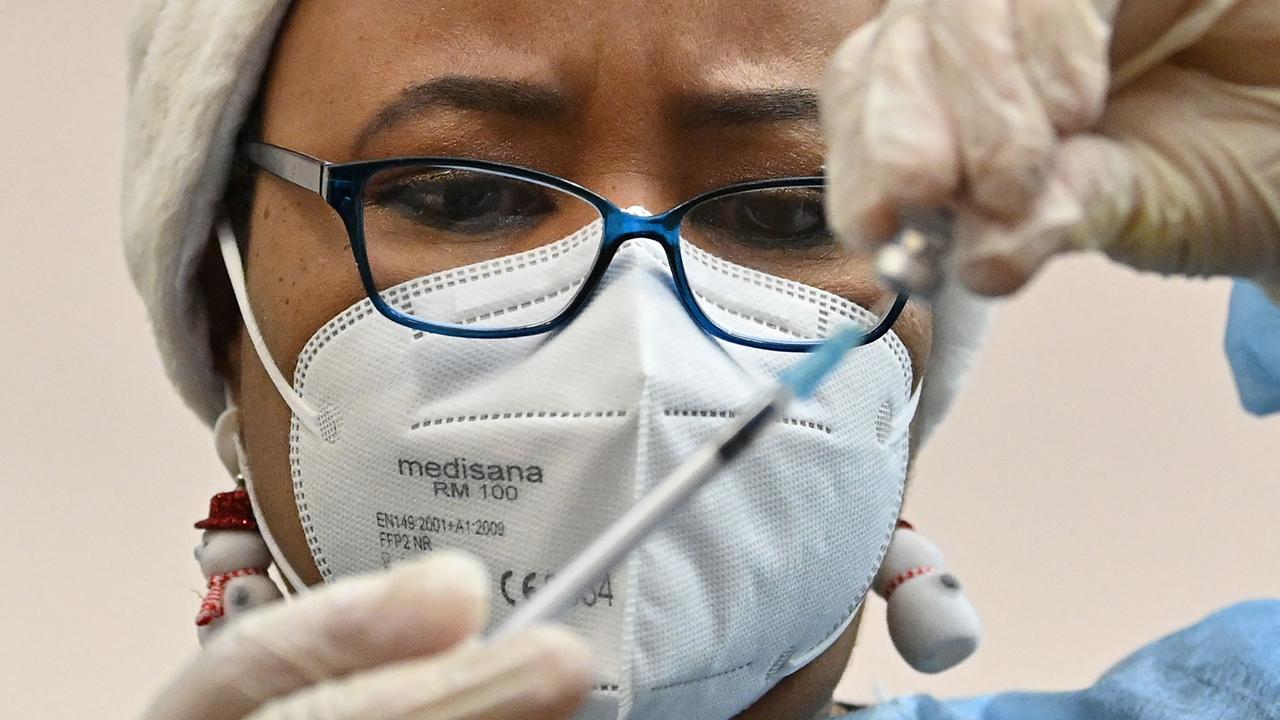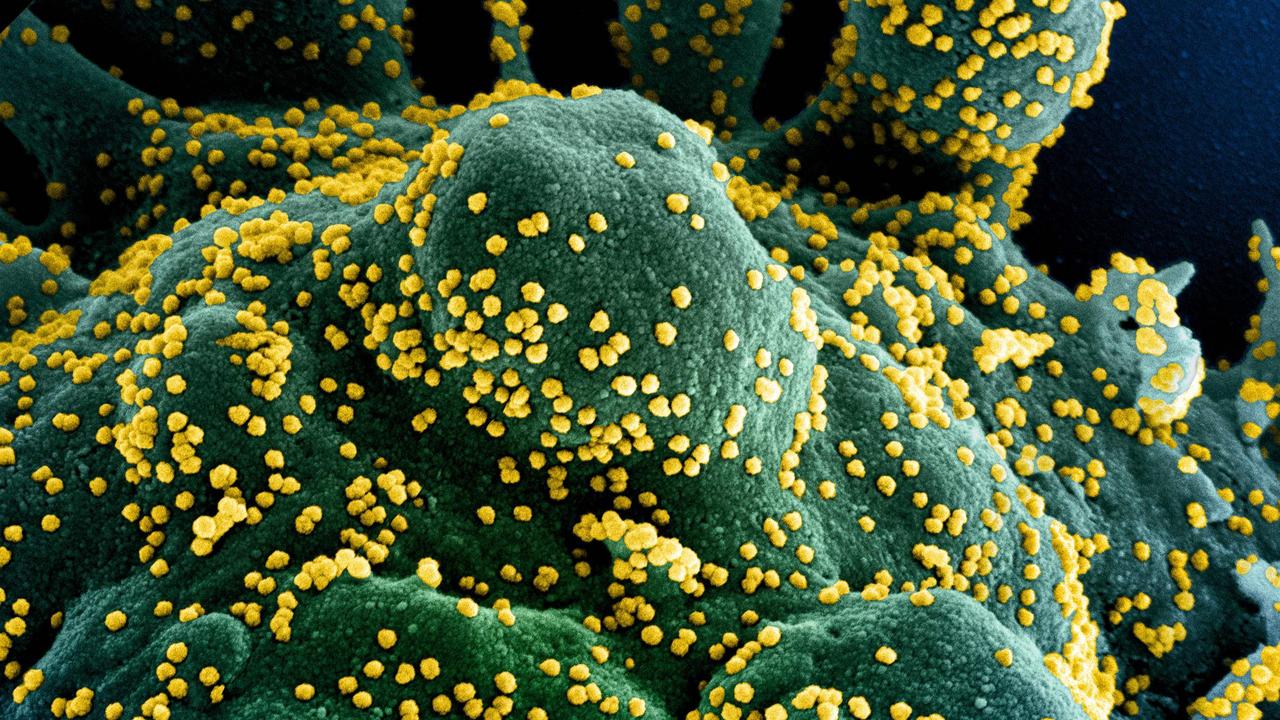New Covid variant circulating in South Africa has one particularly concerning feature
A new Covid variant circulating in South Africa is concerning experts — in particular for one important feature that could impact vaccines.

The emergence of a concerning new Covid variant in South Africa has many scientists worried — in particular for its mutations in one specific area.
Deakin University epidemiologist Professor Catherine Bennett said the B. 1.1.529 variant spreading rapidly in South Africa was a standout for the sheer number of mutations it contains but also for where many of these were located.
“Usually a new variant only has a handful of important mutations,” she told news.com.au.
While there may be other minor changes, the major ones generally change things like the virus’ transmissibility for example.
In comparison to the handful of major mutations in other variants, the latest version had more than 50 mutations and Prof Bennett said this is “unusual”.
“More than 30 are in the spike region alone,” she said.
Mutations in the spike region are particularly significant because this is where the virus attaches to human cells, it’s also that part of the virus that vaccines focus on.
If the variant is different enough from other previous versions of the virus, our body’s immune system may fail to recognise it or remember how to fight it off, even if the person has been vaccinated or has had Covid before.
The World Health Organisation said in this variant there were at least 10 mutations linked to the receptor-binding domain on the protein spike. This compared to two for Delta or three for Beta.
“The concern is that when you have so many mutations, it can have an impact on how the virus behaves,” WHO technical lead on Covid-19, Maria Van Kerkhove, said at a virtual press briefing.
“It will take a few weeks for us to understand what impact this variant has on any potential vaccines.”

Prof Bennett said the variant was so new, the WHO is yet to give it a name, although it is scheduled to do this on Friday, with many expecting it will be called “Nu” if the organisation continues to follow its Greek alphabet pattern.
WHO will also consider whether to declare it a variant of “interest” or “concern”, which pose an increased risk to global public health and should be monitored.
Prof Bennett said in determining whether B. 1.1.529 was a variant of concern, authorities would consider how transmissible it is, whether it causes more severe illness and whether it is vaccine resistant.
She said it was important for people not to get too alarmed whenever there was a new variant because others that looks concerning had later been “flushed out by Delta”.
“It’s going to take a lot for another variant to replace Delta,” she said.
The other good news is that B. 1.1.529 also a “strange signature” that makes it possible to detect using normal PCR testing.
This means the variant can be identified in anyone who gets tested for Covid, including returning travellers, and they can be asked to isolate in order to stop it from spreading in Australia.
Why is B. 1.1.529 so different?
One of the theories around why the new variant has so many mutations is it may have developed in someone who was immunocompromised.
“This shows you that a mutation can take off in one person, and that’s the problem, it’s always a risk,” Prof Bennett said.
But she said it was still unclear whether this was the case and it could still have developed in the community and built up mutations as it was spread from one person to the next.
Prof Bennett said in general the more the virus spread the more likely it was that mutations would develop as they generally happen while the virus is replicating itself.
“There is a misreading of the RNA and it ends up with the virus being a bit different,” she said.
Mutations are not always bad, with some believing that Japan’s Covid outbreak may have died out because the virus mutated itself to an evolutionary dead end.
“We don’t know how things will play out,” Prof Bennett said.
“We are learning all the time about the level of mutation a virus can tolerate before it becomes less competitive or less fit.”
Globally she said it was important for people to be vaccinated and not leave pockets of people who could be infected and then develop these mutations.
“The more infections you have, the more viral replication there is and mutations happen,” she said.

No surprise it developed in South Africa
Only 24 per cent of South Africa’s population is fully vaccinated and the World Health Organisation also expressed concern recently about the low rate of vaccinations among health workers in the region.
Just 27 per cent of health workers in Africa are protected, leaving the bulk of the workforce susceptible.
Prof Bennett said South Africa had recently beaten its biggest wave of infections yet, bringing this under control in September.
But on Wednesday, the number of daily infections hit 1200, up from 106 earlier in the month.
So far the new variant seems to have become dominant mainly in one province so it was unclear whether it would overtake Delta, which had previously been driving infections in the country.
Prof Bennett said the virus could be more widespread in Africa than the figures show, with the possibility that many had also not been diagnosed or treated.
The country also has a high number of people living with HIV, which compromises people’s immune systems.
“I wouldn’t be surprised that is where we see variants arise, like we saw in India too,” she said.
A new era of surveillance
As new variants like B. 1.1.529 emerge, the way the world manages Covid could change once again.
“This is moving into a new era, which is all about surveillance,” Prof Bennett said.
The United Kingdom has already closed its border to people travelling there from South Africa but Prof Bennett said there were other options.
She said Australia could screen people as they entered the country for variants and then ask them to quarantine if they tested positive or were on a plane with someone who was infected.
If outbreaks of these variants were detected in the country, health authorities could prioritise the management of these including through contact tracing.
“I think that’s what we’ll see,” she said. “Not jumping at every single case but focusing on variants of concern at the borders and internally to make sure it doesn’t have a chance to take off here.”
More Coverage
She said Australia’s strategy of maintaining high rates of vaccination while keeping the number of infections down, isolating cases and controlling outbreaks was a good one.
“If we can keep doing that we’ll be in a good position but we just have to help the rest of the world do that too.”
— with AFP





